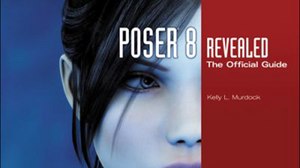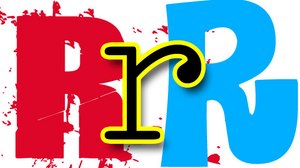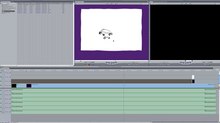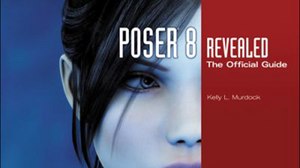Category: Education and Training
Gnomon Shows Off Art From Transformers: War for Cybertron
Gnomon's art gallery shows off Transformers: War for Cybertron. Great looking art featuring Optimus Prime, Megatron and... Zoidberg?
Gobelins Offers Summer Character Animation Course
GOBELINS, l'ecole de l'image, an applied arts, print and digital media school in Paris, is known for its award-winning student films that have won many international prizes.
Publishing a Book is Now So Easy Even a Writer Can Do It!
The book publishing industry, like the newspaper biz, is on a glide path to oblivion. It's just too easy and cheap to download a book to your computer, iPad, Kindle or smartphone.
And that was last year!
Now it takes less time to publish your own book than it does to write a publisher query letter, let alone send it out and wait for the rejection letters.
'The Advanced Art of Stop-Motion Animation': Building Puppets: Part 4
In the latest excerpt from The Advanced Art of Stop-Motion Animation, Ken A. Priebe continues his lesson on building puppets, focusing on face armatures, replacement faces and rapid prototyping.
Its Jerry Time! Website The Basis For New English ESL Course
Its Jerry Time!, the Emmy Award-winning animated website created by Jerry and Orrin Zucker, announces the creation of Its English Time!, an entire eCourse, which teaches English as a second language (ESL) based on the twenty episodes from the hit web series.
'Poser 8 Revealed': Working With Files & Accessing Content Paradise - Part 2
Kelly L. Murdock finishes the discussion of working with files and accessing content paradise from Poser 8 Revealed.
Nick Animation Studios Named to Vault.com Top U.S. Internships
Vault.com, the source for employer rankings, ratings and reconnaissance, is once again helping undergraduate and graduate students get a jumpstart on their careers with its latest release of the Top 10 U.S. Internships as well as the Top 10 internship programs across a number of industries and categories, such as best perks and most unusual experiences.
How to Prosper in Toon Town — An Excerpt from "How to Write for Animation"
Before you run off half-cocked with that shiny new animated six-shooter of yours, here are a few pieces of advice that will help you live long and prosper in this business. It would be foolish to think you could become a good animation writer without first understanding a little bit about creativity, especially considering cartoon writing is one of the most creative forms of writing there is. Fortunately, creativity is not as ethereal as some might lead you to believe.
'The Advanced Art of Stop-Motion Animation': Building Puppets: Part 3
In the latest excerpt from The Advanced Art of Stop-Motion Animation, Ken A. Priebe continues his lesson on building puppets, focusing on silicone and plastic casting.
Sound Design For Animators - free webinar
David Sonnenschein, professional sound designer and author of “Sound Design: the Expressive Power of Music, Voice, and Sound Effects in Cinema” has invited me to co-host a free sound design webinar for animators (all filmmakers are welcome!) on March 17, 2011 at 9:00 am PST / noon EST.
'Poser 8 Revealed': Working With Files & Accessing Content Paradise - Part 1
Kelly L. Murdock begins the discussion of working with files and accessing content paradise from Poser 8 Revealed.
K.I.S.S. Bad Stories Goodbye
One of the most useful maxims in life is known by the acronym K.I.S.S. I'm sure you've heard of it. It stands for “Keep It Simple Stupid”. But simplicity is not just the key to a happy life; it's also the key to great storytelling—which only makes sense because stories are about life. Well-written animated features, no matter how complex they may seem upon first viewing, have basic character and plot elements that are very simple. To create a simple, well-constructed story you need only answer the following questions...
'The Advanced Art of Stop-Motion Animation': Building Puppets: Part 2
In the latest excerpt from The Advanced Art of Stop-Motion Animation, Ken A. Priebe continues his lesson on building puppets, focusing on puppet anatomy.
'Poser 8 Revealed': Editing and Posing Figures - Part 3
Kelly L. Murdock concludes his overview of editing and posing figures in Poser 8 in this excerpt from Poser 8 Revealed.
Learn the Three R’s to Become a Better Screenwriter
There are only two things you need to do to become a better writer: study and write. The question is: are you studying and writing optimally? I wrote screenplays for Columbia and Paramount on instinct, and wrote hundreds of animation scripts the same way. But I’d never really “learned” how to write. I finally decided to get serious about my craft and read all the best-selling screenwriting books. I learned quite a bit. But one of the most important things I learned was that WHAT you read is only half of the journey. HOW to read is the other. Learn the three R's and become a better screenwriter...
How to Get a “God’s-Eye View” of Your Story in Microsoft Excel
The reason I use Excel to develop story structure is based on a writing principle I discovered years ago. I call it getting a God’s-Eye View of the story. I realized that by writing my outline beats in a normal word processing program it took screen after screen to go through my scenes. So while I was looking at one portion of my story, the rest of the story was out of sight. And as they say, “Out of sight, out of mind”. But when I write I want all of my story in mind. And here’s how I do it...
Life As A Diva!
As you know if you have been reading my blogs, I don’t typically write about myself. It’s that time of year for reflection I guess and I thought to share of my own personal background and experience. As we ponder our career choices in life, we usually are faced with making decisions about our life’s path as we graduate college and enter the work force or sometimes opportunities present themselves even earlier in life.
How to Turn Microsoft Word into a Terrific Screenwriting Program
Several of you have asked me for instructions on how to set up Microsoft Word “styles” for script writing. A style is simply a saved bundle of formatting instructions. If you are familiar with screenwriting software such as Final Draft or Screenwriter, you know that what they basically do is make it easier to write scripts by automatically formatting script elements, fonts, paragraphs, etc. If you follow the instructions below you will turn Microsoft Word into a simple but effective screenwriting program.
You May Have Written More Than You Know!
Here's a tip for professional television and film writers. If you haven't thought of this one yet it will save you time by eliminating the need to write some things twice. But best of all, in just a couple of minutes it will let you see that you've probably already drafted over half of your script. And that will make most any writer feel GREAT! What I do is this: After I've written an outline, and am ready to start the script, I cut and paste the outline directly into my script document. But then I take it one important step further...
The Difference Between Live-Action and Animation Writing
If you want to write animation—or if you just want to produce or direct it—it’s important to know the difference between live action and animation writing. Animation stories are developed pretty much the same as in live action. You come up with a concept, sometimes called a premise, describing the basic beginning, middle and end of the story. The next stage is an outline, laying out each scene, including action and gags. The final step is the script, with full scene description and dialogue. The script form in animation is virtually identical to live action. It’s the differences that are important to understand.
'Poser 8 Revealed': Editing and Posing Figures - Part 1
Kelly L. Murdock starts his overview of editing and posing figures in Poser 8 in this excerpt from Poser 8 Revealed.
Frenzer Foreman Animation Forum (podcast) x 21
Special Guest: Ottawa International Animation Festival - Part 2
The Big Bang, Opposable Thumbs, Fire, the Wheel, Chop-Sticks, Animal Husbandry, The Mona Lisa, Gigli, Head-On, the Frenzer Foreman Animation Forum. Now, the most exciting conclusion to the most anticipated part 2 part of the most recorded audio podcast by the Frenzer Foreman Animation Forum at the Ottawa International Animation Festival in 2010...

























































